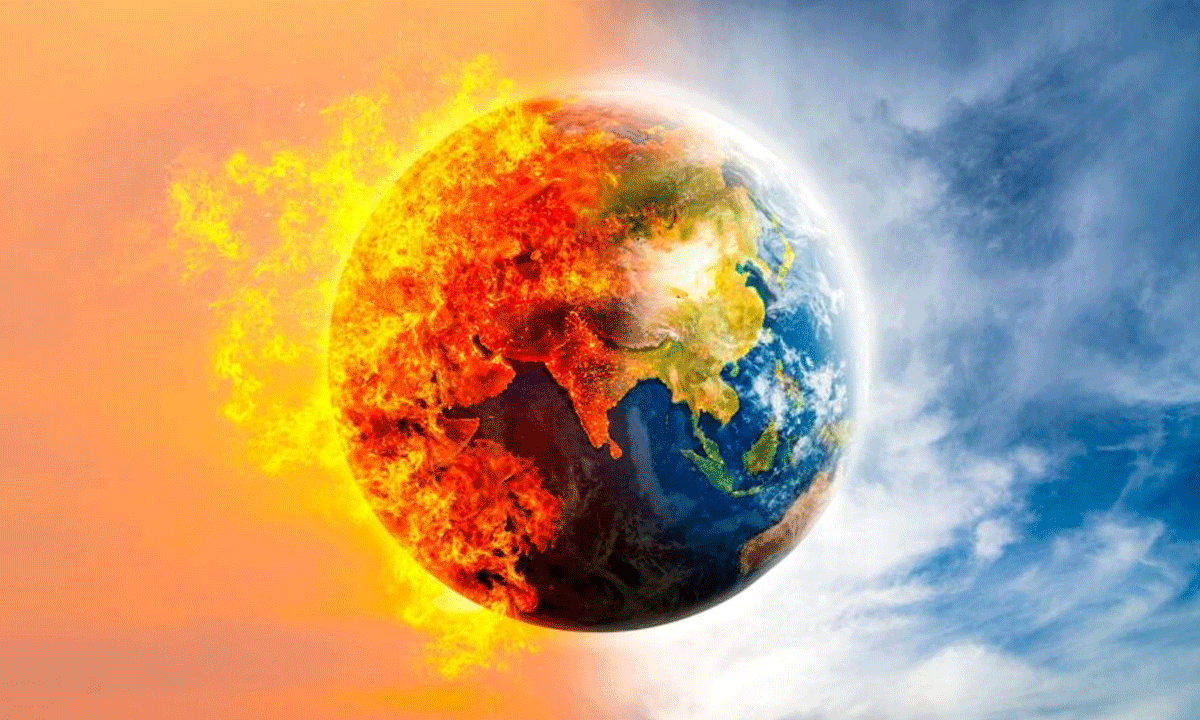Global Warming Threatens Global Food Security, Warns Major Study Published in ‘Nature’
This could have devastating effects, particularly on low-income and developing countries, where access to nutritious food is already limited.

Global warming is not just a climate emergency — it’s a looming food crisis. According to a new study published in the prestigious journal Nature, even a 1°C rise in global temperatures could lead to a drop of 120 calories per person per day, which amounts to nearly 4.4% of average daily food intake.
Table of Contents
This could have devastating effects, particularly on low-income and developing countries, where access to nutritious food is already limited.
Stanford-Led Global Study Rings Alarm Bells for the Entire World
The research, conducted by Stanford University in collaboration with top global institutions, indicates that by the end of the 21st century, caloric output from key crops could fall by up to 24%.
Lead researcher Professor Solomon Hsiang emphasized,
Also Read: Donald Trump Issues 10% Tariffs Warning to Pro-BRICS Countries During Brazil Summit
“If the world warms by just 3°C, it would be as if the entire planet skips breakfast permanently.”
The study further warns that this impact will be disproportionately severe on the poor, especially in developing nations already facing malnutrition issues. Over 800 million people currently suffer from nutritional deficiencies — a number that could drastically worsen if no action is taken.
Climate Change Set to Hit Major Agricultural Regions Like the U.S. Midwest
The report identifies regions like the American Midwest, known for corn and soybean production, as among the most vulnerable to future climate extremes. Key threats include:
- Rising heatwaves
- Erratic rainfall patterns
- Loss of soil moisture
- Damage to pollination processes
- Crop withering or premature wilting
Conversely, colder regions such as Canada, Russia, and parts of China may temporarily benefit from the warming climate — though this may not offset global losses.
8% Crop Production Loss Projected by 2025, With or Without Emissions Cuts
The study projects an 8% decline in crop yields by 2025 — regardless of whether carbon emissions are reduced or not. This is due to the long-lasting presence of greenhouse gases like carbon dioxide in the atmosphere, which can persist for centuries.
However, researchers suggest that the damage can be partially mitigated through:
- Climate-resilient agricultural technologies
- Investment in sustainable farming practices
- Financial and infrastructural support for farmers
- Strong global policies and immediate, collective action
A Warning for Every Global Citizen
Experts stress that this is not just a warning for scientists or policymakers — but for every individual who relies on food to survive. Immediate action is required to prevent widespread hunger, malnutrition, and instability.
